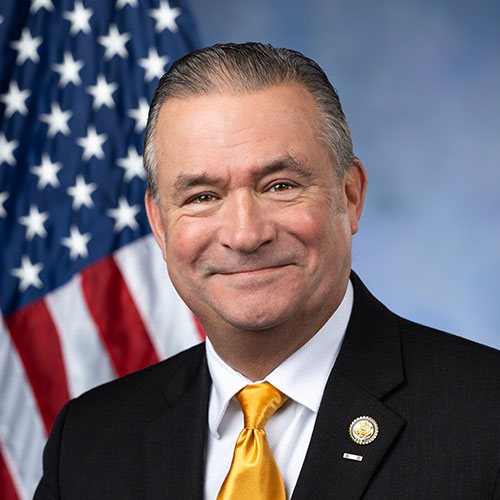Today, Representatives Don Bacon (R-NE), Gil Cisneros (D-CA), Seth Moulton (D-MA), and Van Taylor (R-TX) introduced bipartisan legislation amending the United States Code to criminalize lynching and provide for enhanced sentencing under existing federal hate crime statutes. H.R. 3536, The Justice for Victims of Lynching Act of 2019, would recognize that a lynching offense is a tool used to intimidate and deny civil rights based on personal prejudices.
Dating back to 1918, there have been 200 failed attempts to pass anti-lynching legislation and now is the time for Congress to right this shameful failure to criminalize this act. It is an instrument of terror and intimidation. According to the Tuskegee Institute, 4,743 people were lynched in the U.S. between 1882 and 1968 of various ethnicities, the majority being African-American.
“Sadly, my own District has a horrible stain in its past with the lynchings of Will Brown and George Smith, both murdered at the hands of lawless and angry mobs in Omaha,” said Rep. Bacon. “We cannot simply wash away the past, but we can try to honor the victims by acknowledging that lynching is a terroristic crime that was frequently used to intimidate and oppress African-Americans. I’m proud to have Reps. Cisneros, Moulton and Taylor join me in this rightful redress of those barbaric lynchings so we can reflect the words written on Will Brown’s tombstone, ‘Lest We Forget’.”
“It is unacceptable that Congress has failed to acknowledge the horror and violence of lynchings and seek justice for victims,” said Rep. Cisneros. “Our nation has no room for hate. Congressional action to pass anti-lynching legislation is long overdue, and I look forward to working with Representatives Bacon, Moulton, and Taylor and my colleagues on both sides of the aisle to get this much needed legislation to the President’s desk.”
"One of the most depressing experiences I’ve had in the last year is visiting The National Memorial for Peace and Justice in Montgomery, Alabama. It’s deeply disturbing that American communities across this country essentially condoned hate-filled murder, and it wasn’t all that long ago,” said Rep. Moulton. "Near the end of the memorial, I spoke with a black mother with two young kids, and I said, 'I can’t imagine how you explain this to your children.' We have a lot of work to do as a country to atone for these crimes and their legacy of oppression through discriminatory voting rights, unfair housing policy, and unjust criminal sentencing. This bill is a small step in the right direction.”
“While no legislation can undo the atrocities of our nation’s past, we can take steps to ensure such transgressions never occur again,” said Rep. Taylor. “I’m proud to work with my colleagues to heal the wounds of America’s past.”
In order for our Nation to heal from past and present racial injustice, Congress must specify criminal penalties for the crime of lynching, or any attempt or conspiracy to commit lynching. Only by coming to terms with our own history can the United States effectively champion human rights abroad. This legislation will accomplish that.
The wording of H.R. 3536 mirrors the language of S. 488, introduced by Sen. Kamala Harris in the Senate, and passed on February 14, 2019.
###
